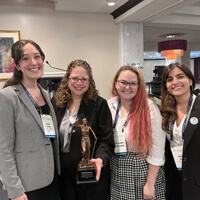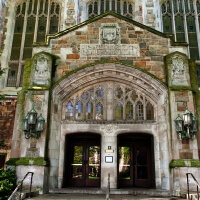Professor Bennoune served as Special Rapporteur for Cultural Rights from 2015 to 2021. She was instrumental in testifying to the destruction of cultural property in “The Prosecutor v. Ahmad Al Faqi Al Mahdi,” the only ICC conviction for the destruction of cultural property to date. Come learn about her work as a Special Rapporteur and the evolution of cultural heritage as a human right.
The right of access to and enjoyment of all forms of cultural heritage is guaranteed by international human rights law, including the Universal Declaration of Human Rights and the International Covenant on Economic, Social and Cultural Rights and the International Covenant on Civil and Political Rights, deriving its legal basis, in particular, from the right to take part in cultural life. Other human rights must also be taken into consideration, in particular the rights to freedom of expression, freedom of thought, conscience and religion, the right to education, the economic rights of the many people who earn a living through tourism related to such heritage and the right to development. The right of access to and enjoyment of cultural heritage includes the right to participate in the identification, interpretation and development of cultural heritage, as well as in the design and implementation of preservation and safeguard policies and programs.
The intentional destruction of cultural heritage is a human rights issue. The approach to stopping it needs to be a holistic one, encompassing all regions, focused on both prevention and punishment, and targeting acts committed by both State and non-State actors, in conflict and non-conflict situations.





